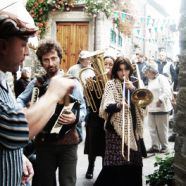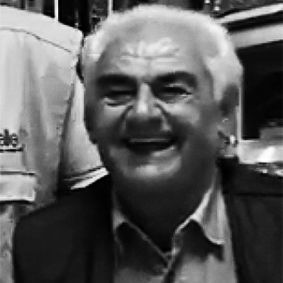Festival of Provinces
Festival of Provinces
Itinerant Festival of Folk Culture
The Festival of Provinces binds ideally popular Italy to a system of relations, communications and activities.
13th December
December 13. National day of Italian Network of Folk Culture
Simultaneous events throughout Italy
On December 13 has been proclaimed the National Day of the Italian Network of Folk Culture. A day of celebration and parties, to remember and to enhance the role of traditions and knowledge that are handed down, often only orally, from generation to generation. Folk culture is an ephemere heritage, likely to get lost: that’s why it has to be safeguarded.
The initiative, of which the leader is the Italian Network of Folk Culture, takes place by means of multiple, simultaneous events throughout Italy. It wants to be a demonstration of how folk culture is rooted to the singular territories, with their customs and traditions which vary from area to area. But it wants to emphasize, at the same time, that there is a vitality involving the whole national territory, a totality represented by the pop knowledge .
The feast day is December 13 because of Saint Lucia, who was elected as patron of folk culture and that is celebrated on this same day. The martyr who, according to the tradition, has the gift of sight even without eyes is a light that shines on our traditions. The torches lighted in honor of Saint Lucia, in the past as now, become the lights fired up by and for the folk culture, symbolically and simultaneously, throughout Italy.
Associations, schools, museums, local authorities, libraries, artists and citizens (all those who belong to the network culture, not only virtual, which constitutes also an economic engine for the local communities) will be activated on their own territory. Each event will ideally join the myriad of expressions organized and distributed over the entire Italian Peninsula on December 13. This manifestation wants to give a loud message for the protection and enhancement of some critical components of our cultural heritage: folk culture and the intangibles goods.
Many initiatives are already previewed, other ones are been added these days. The Network has called to participate all those who want to present their proposals, which will be collected and promoted on the portal www.reteitalianaculturapopolare.org
The Network is now a reality in almost all Italian regions, aiming to identify, create and develop actions to convey that knowledge that is often transmitted only orally and that every day runs the risk of disappearing forever.
All the actions that the Network promotes have the statutory aim of facilitate the "passing of the baton", creating the conditions for the younger generation to come into relationship with pop knowledge and the Masters of a culture often forgot by the conventional circuits.
Click here to read the latest news in Italian
Summer School for Pop Culture
Summer School Camp. Continuing Education Project for Folk Culture
The idea of the Summer School for Folk Culture is a pilot experience, unique in Italy.
Born to make up for the lack of new needs in interdisciplinary studies about demo-ethno-anthropological intangible heritage (as specified by the Unesco Convention of 2003), the Summer School provides an opportunity, to Network’s members and Italian or foreign students, to follow specific refresher/improvement courses in the summer months. Its attendance may also provide the allocation of credits recognized by faculties for students regularly enrolled or, if required, holding an active agreement with the academic structure or the teachers.
Participants of this training will not be, however, only students. The Summer School is in fact open to all who wish to get in touch with the cultural realities of the provinces, join the project and learn more about the traditions of the area, thanks to a series of workshops and meetings. The activities are held by teachers from academic world or with significant experience in the field of demo-ethno-anthropological immaterial heritage.
Creating links between territories, listening to the local reality through a national network, connecting traditions, places and people: all this might happen in a territory outside the major tourist destinations, a territory that needs to be discovered, listened and revitalized. From these needs was born the idea of a real university of experience.
On the organizational point of view, the control room of the Summer School for Folk Culture will work with the aim of enhancing the cultural heritage, but also on the basis of services offered by local authorities participating in the project. Thus, it will identify the municipalities able to well accommodate the training, providing participants with a rich range of experiences, reflections and actions. The experience will also include spectacular and convivial moments, put in place by various involved figures - scholars, performers, artists - who will enliven the evenings, to completion of a unique cultural project.
Click here to read the latest news in Italian
Euro Mediterranean Network of Culture and Heritage
ARIANNA
Euro Mediterranean Network of Culture and Heritage
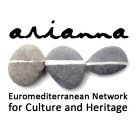
Why "Arianna"?
Ariadne (Arianna, in Italian), the purest, otherwise known as the lady of the labyrinth, a woman who gets to save her lover Theseus from being devoured by the Minotaur. Theseus, trapped in a maze, with the help of a wire that Arianna provides, will find the way back. Arianna saves us from a maze, but what a maze? We take the license to use the words of an Italian philosopher, Giorgio Colli, which defines the labyrinth as "a multifaceted network with endless centers of radiation." Our network is also a multiform network, since it represents different countries of the Mediterranean, and more. We could say that each member can be a center of irradiation with the same activity and dynamics of working in favor of culture. What would happen if Arianna offered us a thread? By connecting our territories, it would give us the opportunity to make a greater force than that which each of us could accomplish. That thread would give meaning and coherence to the individual strengths of each connected point. This is the reason why we use the myth of Arianna, so that, through the network and through its wire, the whole is better than the sum of its parts.The Signatories
Traveling Mediterranean Festival
Since 2012, the Traveling Mediterranean Festival is on. This is a real trip to navigate through the ports and cities of the Mediterranean.
Main events and projects that took to the creation of Arianna
- 6 July, 2008 – Fez (Morocco) - In cooperation with the “Esprit de Fès”, World Sacred Music, Foundation (Morocco) and ONG Fawanees (Egypt), the first action about a common work towards the creation of a Euro-Mediterranean Folk Culture Network, took place in 2008. The Italian Folk Culture Network participated to the Festival Amazigh Esprit de Fès, World Sacred Music, with the “Canto a tenore Cunsonu Santu Giuanne” coming from Thiesi, Province of Sassari.
- 25, 26 and 27 July , 2008 – International Festival of Folk Oral Culture, Turin - The edition 2008 of that Festival was opened by the round table about “The Mediterranean Oral Culture”: a meeting about local cultures and networks building, attended by the members of the Italian Folk Culture Network, its Scientific Committee, some anthropologists and the most important representatives of cultural organisations belonging to the Euro-Mediterranean basin. Within the performing arts program of the festival, a significant part has been dedicated to Mediterranean oral culture's expressions, with the participation of several groups from Euro-Mediterranean countries: Avinar (Iran), Bouaazza Larbi (Morocco), Ensemble Fawanys (Egypt)
- 24-26 October 2008 – Bibliotheca Alexandrina, Alexandria – CULTNAT, Cairo (Egypt) - “Oral traditions between the two shores of the Mediterranean: local cultures and network construction” in cooperation with Piedmont Region, Herimed, CULTNAT (Center for Documentation of Cultural and Natural Heritage-Bibliotheca Alexandrina), Traditional Music of Egypt. In occasion of “The Week of the Italian Language in the world”. From Cctober 24th to 26th, the Italian Folk Culture Network, in cooperation with Herimed Association, CULTNAT (supported by the Egyptian Ministry for Culture) and the local Fawanys association, organized in Egypt an international event about the folk oral culture. The initiative, sustained by Piedmont Region, was included in the “The Week of the Italian Language in the world” and represented a real summit to lay the foundations for an effective and far-sighted policy aiming to save folk culture from extinction. Further to the musical performance Veglia per la Terra (Wake for the earth), that saw the cooperation on stage among Italian and Egyptian traditional musicians, a seminar was held on “Oral traditions between the two shores of the Mediterranean: local cultures and network construction”. The representatives of UNESCO, Anna Lindh Foundation, CULTNAT, Festival of Provinces Committee, Piedmont Region and Herimed Association were speakers.
- 5 May 2009- Circolo dei Lettori (Readers’ Club), Turin - The new edition of “Lingua Madre” aimed to promote the safeguard of cultural and linguistic differences, the protection of communities and socio-historical memories of natives. It was also an occasion to plan a geographical exploration of Southern Caucasic area (Armenia, Georgia and Azerbaijan). To that effect, the Italian Folk Culture Network engaged itself in the development and managing of the meeting-concert with Fakhraddin Gafarov and the turkish traditional music.
- 14 May 2009 – Turin International Book Fair, Lingotto Fiere Exhibition Centre - On may 14th, at 8 p.m., the Italian Folk Culture Network presented the performance Veglia per la Terra (Wake for the Earth), a concert where musicians from Piedmont, of new and old generation, met egyptian artists to renew an ancient tradition.
- 26, 27, 28 June 2009 – International Festival of Folk Oral Culture, Turin - The whole Festival opened a door on the migrant communities in Italy and Piedmont Region, that expressed themselves through exhibitions, talk-shows about culinary subjects, introducing meetings and workshops about rituals and traditions.
- 5 July 2009 – Fès (Morocco) - The cooperation with the Esprit de Fès Foundation has continued: the Fès Festival of World Sacred Music hosted two concerts of the Italian group “Viulan”, formed by thirty-years-experienced researchers and representatives of tradition in the Frignano area, placed in the Tuscan-Emilian Appennine.
- 27 november 2009 - Circolo dei Lettori, Turin - Within the autumnal edition of “Lingua Madre”, the Italian Folk Culture Network presented Quel che resta è la voce (What remains is the voice). Beyond the linguistic and cultural differences is the tale of stories, a first attempt to bring together for an evening some historical and recently settled languages in our region. A little step and a wish for a true civil convivence, that will be reproposed in a more articulated dimension during the events promoted by “Lingua Madre” at the 2010 Turin International Book Fair.
- 7 november 2009 – Manresa, Spain – Mediterrània - The “Fira Mediterrània” Foundation organized from november 5th to 8th, the 10th edition of “Fira Mediterrània”, peculiar for its strong international aspect. During the 3rd professional Symposium titled “2009-2010-Get together: Fairs and Festivals” held on November 7th, were hosted 35 operators coming from Greece, Italy, Lebanon, Morocco and United Kingdom, as well as Catalunya, Valencian Community, Basque Countries and the City of Madrid, giving life to various seminars and round tables. The Italian Folk Culture Network, in the person of its director Antonio Damasco, was invited to keep a specific report as an example of cultural system, where the local forces of individual territories reach a value that individually they could not get - concerning communication, economies of scale, operative qualities, planning capability, national and international level of participation. On that occasion, in the presence of Alessandra Giudici, President of the Province of Sassari, has been presented one of the Intangible Goods recognized by UNESCO as World Heritage, the “Canto a tenore”, from Sardinia.
- Euro-Mediterranean work-table – Site: Province of Sassari Palace, Angioy Hall. “Towards a Euro-Mediterranean Network of Folk Culture” - That convention has been an opportunity of comparison between the main promoters of folk culture from various countries of the Mediterranean area. In addition, it's been a way to keep on building an inter-organizational network that aims to safeguard, research and promotion of traditional and folk culture in the Euro-Mediterranean territories. This effort is oriented to create conditions by which these cultures can be involved in a system of international networks to increase the value of local cultures.
Speakers:
- Alessandra Giudici- President of the Province of Sassari and President of the Italian Folk Culture Network, Italy
- Ugo Perone - Councillor for Culture, Province of Turin, Italy
- Carlo Falato – Councillor for Culture, Province of Benevento, Italy
- Cinzia Tacconi – Councillor for Culture, Province of Grosseto, Italy
- Antonio Damasco - Director of Italian Folk Culture Network, Torino, Italy
- Malak Wahba – CULTNAT, Centre for documentation of Cultural and Natural Heritage, Bibliotheca Alexandrina, Cairo, Egypt
- Dragos Cosmin Preda, Romania
- Este Lozano Tornè – Qadar Cultural Productions, Barcelona, Spain
- Jordì Urpì – Cases de la Musica, Barcelona, Spain
- Moha Ennaji – Fez Festival of World Sacred Music, Fez, Morocco
- Roberto Albergoni – HERIMED, Association for the documentation, preservation and enhancement of the Euro- Mediterranean Cultural Heritage, Palermo, Italy
- Zéphora Nachite - Fệte de la Méditerranée, Association EPI, Marseille, France
- The tradition of bonfires and fellowship rites on St. John’s day - Till the Fifties, the town of Alghero was the scene of important celebrations during the month of June, owing the celebrations of St. John’s day. It was a very old traditional feast where ancestral rituals merged with the religious anniversary.With the economic boom years, the celebration lost its importance and gradually disappeared. Since 2010 the Feast has returned to life and during only one edition has become an event of strong appeal, able to to involve realities outside the island. The Italian Folk Culture Network, of which the Province of Sassari is member and promoter (representing also the national vice-presidency and the coordination of the “Euro-Mediterranean work-table”), organized a “folk caravan” with the participation of researchers, video makers and performers belonging to the Euro-Mediterranean Network. In this context, the reborned Feast does not want to be only a show and celebration but also a period of research and study on local traditions and a chance of meeting with the local communities.
-
The signing of the Charter of Values of Arianna – Euro-Mediterranean Network of Culture and Heritage - The day June 20, 2012 took place the signing of the Arianna's Charter of Values in the presence of the institutional and cultural representatives of the countries involved. The guidelines that have inspired us in the drafting of the Charter of Values and in the organization of the Traveling Mediterranean Festival 2012 are related to the need to develop economies of scale, which take into account local resources, and want to express the principles of solidarity and encounter, thanks to a shared communication and promotion. All this is to be read as cognitive action between the partners themselves, also aimed to the future possibility of participating in European calls and in shared actions of fund raising . We believe that the establishment of a working network between already operational activities, with good coordination and communication, is a discriminating factor in the search for new resources.
Itinerant Chairs of Folk Culture
The Traveling Chairs of Folk Culture
WHAT ARE THE TRAVELING CHAIRS OF FOLK CULTURE?
The Traveling Chairs of Folk Culture represents the main activity expressing the project of the Traveling University. The University has the objective of promoting meetings, workshops and performances to recirculate and raise awareness about the best practices of folk culture. All its activities are carried out for local communities and are non-profit.
The chairs are developed as meetings between the Masters of Folk Culture® and a participant audience, preferably of young people. During these meetings, the teacher and bearer of knowledge can be a ninety-two-years-old singer, a seventy-three-years-old puppeteer, a craftsman or a thirty-years-experienced choir: people with whom the Network has enabled enhancement projects and collaborations across the peninsula.
These people have therefore accepted the idea that lies behind the work of the Association, that is facilitating the transition of traditional knowledge from generation to generation, through learning experiences and imitation.
As a result, we have real lessons on tradition, held by those who are the bearers, expressions of a territory and a community, a social and economic history. The Traveling University is based on the concept that the best way to communicate with future generations is involving them in ferrying the tradition to new forms of innovation, so as to constitute a culture covenant and a shared location.
The Chairs are the answer to the need of many young people who are demonstrating a sincere return back to folk culture, devoid of rhetoric and eager to collect the good practices of the Masters of Folk Culture®.
WHO CAN LEAD THE CHAIRS?
The Traveling Chairs can be conducted by the Masters of Folk Culture® accredited by the Italian Network of Folk Culture.
Who are the Masters of Folk Culture®?
The project of Masters is one of the most significant of the association, which has been conducted for seven years in Italy, supported by a National Scientific Committee.
The Masters of Folk Culture® are registered as messengers of knowledge, often oral, that the Network considers "necessary intangible goods”. These Masters are designed to enhance the dissemination of projects and knowledge of a culture which is not officially recognized. The Network, in collaboration with local authorities, has signed a commitment statute.
They can be recognized Masters of Folk Culture® the bearers of knowledge in several areas connected to tradition: festivals, rituals, songs, dances, but also craft knowledge, gastronomy and all those different expressions of ancient cultural history representing the inseparable value of each geographical area.
The Masters accept to become teachers of the Traveling Chairs of Folk Culture, in order to perpetuate the transfer of knowledge and good practices.
How to submit a proposal in recognition of Masters of Folk Culture®?
To nominate a Master, fill and send the form found by clicking HERE
Candidacy will consequently be examined in collaboration with the Scientific Committee of the Italian Network of Folk Culture.
THE TRAVELING CHAIRS OF THE MEMBERS' TERRITORIES
Each Member (municipality, province, region), by virtue of the participation’s fee, canl propose the candidature of some Masters of Folk Culture®, a cultural expression of its territory, by filling in this DATABASE. The Network, in agreement with the Scientific Committee and the Members Board, will assess the applications and identify Masters who may be teachers of these chairs.
The original commons of the Masters identified will become homes of the Traveling University of Italian Network of Folk Culture, hosting Masters from all over Italy.
In turn, the Masters will hold Chairs by the other members’ territories on the peninsula.
The Chairs Program will be included in the official calendar of the Traveling University of Folk Culture.
Every year, during the International Festival of Folk Oral Culture held in Turin during the first fifteen days of June, the Masters will be presented to the public and recognized internationally as Traveling Teachers of the University.
In summary:
1_propose the nomination of the Masters, with THIS FORM;
2_ become common-home of the Traveling University;
3_during the International Festival of Folk Oral Culture, Masters of Folk Culture will receive awards
TRAVELING CHAIRS OF ATTACHED TERRITORIES
Any territory attached to the Network may propose nominations by completing this DATABASE, even not being a member of the Network. To join, please list online a Cultural Heritage’s witness from your own area.
The Organization will be responsible, together with the Scientific Committee, to examine the Masters of Folk Culture®, placing them among the Masters recognized and promoting meetings about their history and activities. The Network reserves the right to call Masters of the members’ territories to hold Chairs in other members’ territories of the peninsula.
The original commons of the Masters identified can program the Chairs, with its own resources, with the purpose of being included in the official calendar of the Traveling University of Folk Culture.
It is free to join, but there’s the duty of declaring at least one cultural heritage to be included in the Network: a celebration, a ritual, significant socio-cultural activities intended to safeguard.
1_ adhere putting in a cultural heritage's expression by clicking HERE
2_propose the nominations with THIS FORM
3_The Traveling Chairs program organized on its own territory, with its own resources, is inserted into the official national planning of the Traveling University
4_during the International Festival of Folk Oral Culture, the Masters of Folk Culture will receive awards.
Editorial Projects
Editorial Projects
The Italian Network of Folk Culture, with the second publication dedicated to the Masters of Folk Culture, Lingua, migrazioni, bellezza e magia by Valter Giuliano, begins its first editorial series. This step is another essential action of the Network's innovative way to study and communicating about pop culture.
After a careful investigation, carried out with particular attention to research in the area, have emerged needs of a publishing project, which could become a point of reference for the networks involving schools, universities, libraries, museums and eco-museums.
Many research studies and projects have been published: we must recognize to them a value of "cultural resistance" and the role of disseminating information and scientific sources. However, quite often, they did not pass the local geographical boundaries. That’s why this new tool of the Italian Pop Culture Network aims to have a rigorous editorial line, which goes to make up for the lack of disseminating a cultural history, ever written yet.
The collaboration with Slow Food, a member of the Network from the beginning, ensures this project a distribution on the national territory, as well as the experience of a cultural policy that revolutionized the concept of the local community. Also thanks to this cooperation, the Italian Network of Folk Culture can keep representing a hope not to waste the wealth of knowledge representing the true biodiversity of our culture. On the editorial point of view, consequently, the goal is to identify, develop and create actions to convey a knowledge often transmitted only orally and that runs the risk of disappearing forever.
To carry out this work in a methodical way, is been created a system of "territories in network" that has no equal in Italy, and we're already working on a similar path to involve all the Euro-Mediterranean area (from Egypt to Morocco, from Spain to France, from Romania to Albania, from the Balkans to Turkey). Like the idea of an editorial project, also this tool has received an enthusiastic response and support. It's come not only by institutions and organizations, but also by thousands of individuals who see in recognizing, systematizing and conveying the local - where the living energies of the community coexist - the chance to participate directly in the cultural policy and social development of our country. These people, the "voluntaries of the network", are now a reality across the whole Italian territory: the bearers of a different conception of cultural formation, where the culture is becoming an everyday occurrence with well known roots. In simple terms, these volunteers are not satisfied with a policy of the cultural event as a "consumer product".
I want to underline how the liveliness of this project, which of course has the participation of Regions, Provinces, Municipalities and other local authorities, resides however in the common sense of thousands of young and old people, in their proposals and desire to meet the Masters of Pop Culture, starting a transmission path of the knowledge they inherited.
In addition, since 2009 the Network has met with over thirty communities of recent migration, which are an active presence in our territories, as well as witnesses of an oral tradition of inestimable value. This knowledge, thanks to confrontation and dialogue, is building the heritage of a new and – at the same time - ancient, multicultural community.
To conclude, I'd like to remember that the Network is represented by "antennas" on the whole Italian territory. To identify an antenna we have underlined three essential skills: the involvement of a public body or public attention; a pool of people, associations or volunteers with organizational skills; a stable relationship with a scientific committee or university. Of course, I say it again, all this would not have a chance to develop without a real participation of local communities, with which it can be possible to build a strategic work.
Right in this direction, marked out by the interaction between the local identities and the most important national and international institutions, goes part of the second volume dedicated by Valter Giuliano to the Masters of Folk Culture, interviewed with political passion and transformed into compelling stories by a strong journalistic skill.
Antonio Damasco
Director of the Italian Network of Folk Culture
Click here to know the publications in Italian
TRACKS' HUNTERS
Tracks' Hunters
The year 2013 has seen the official creation, as a result of a solicitation of the territories themselves, of a new figure recognized by the Network and its Scientific Committee, who will be able to work in cooperation with other social actors in each specific area.
This is the origin of the register of Tracks' Hunters. These figures are recognized as "hunters" because of their special ability in collecting and processing material about popular traditions and habits, and because of their special studies about the mentioned territory.
The Tracks' Hunters will also be the active members responsible of increasing the networking of the many archives of the area, helping them to work with the -newly launched- Participated Archive.
The evaluation of the applications of the Hunters is made by the Italian Network of Folk Culture, following a consultation within its Scientific Committee.
NOMINATE HERE A HUNTER FROM YOUR TERRITORY
Book of Trucks' Hunters:
 |
MICHELE TANTIMONACO
|
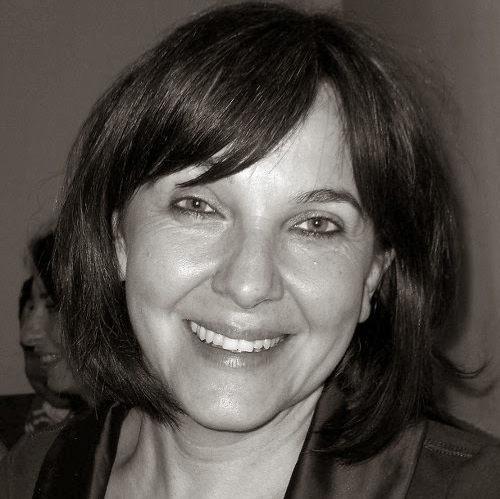 |
GIULIA CAMINADA
|
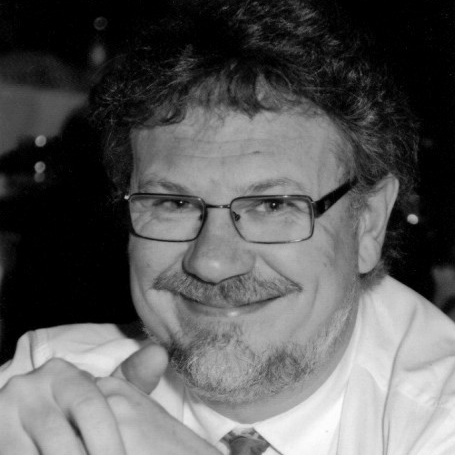 |
RINALDO DORO
|
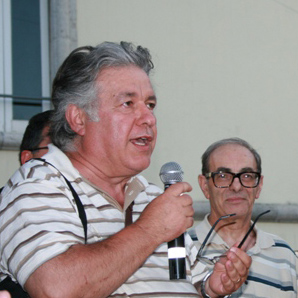
ANTONIO MARIANO
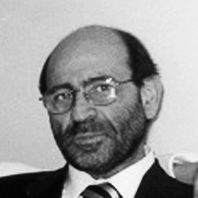
PELLEGRINO CAPONE
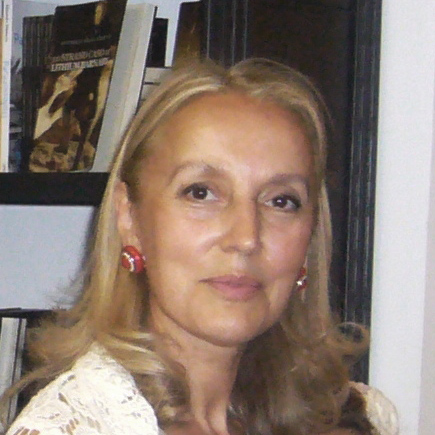
MARIA STELLA ROSSI
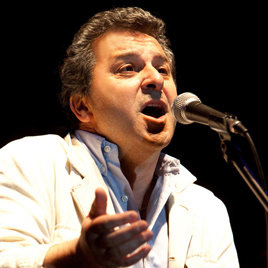
MAURO GIOIELLI
LA LEGGERA CULTURAL ASSOCIATION
Research and documentary center on Oral Culture
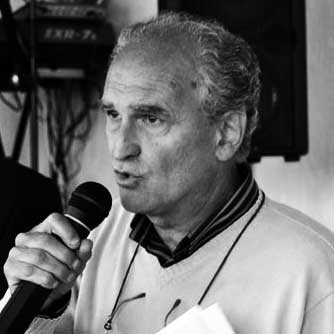
CORRADO BARONTINI
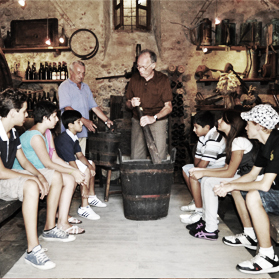
CESARE AUGUSTO e GIANCARLO PESSA
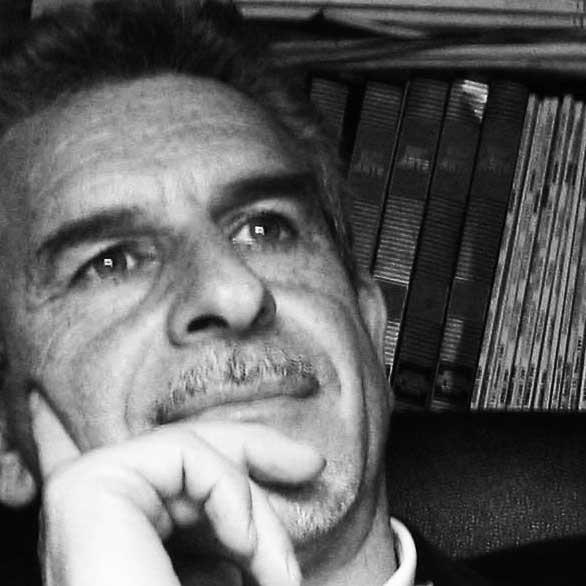
ANTONIO SANTO CURTO
DOMENICO DURANDO
General States of Folk Culture
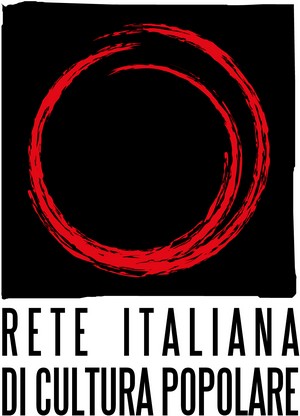 |
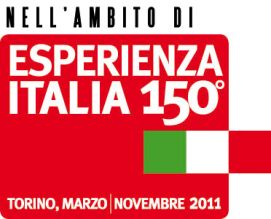 |
||||||||
General States of Folk Culture
Turin – September 22-23-24, 2011
INTRODUCTION
A body of local actors involved in projects of National Culture.
The Italian Network of Folk Culture is now a national organization whose objective is to preserve the enormous wealth of local cultural knowledge. In order to succeed, the Network is enhancing and developing a recognized system for the "diversity" that characterizes the socio-cultural activities of the territories. Through the study and the actions derived from these cultural activities, the Network seeks to re-start a dialogue with the younger generation as well as the old (rituals, festivals, places to meet real and / or virtual social networks). In order to make this work, we have created a system of "territories in network" that has no equal in Italy, and is already working on a similar path to Euro-Mediterranean area (from Egypt to Morocco, from Spain to Germany, from Romania to Greece).
The idea of Network working
The inception of the network is via the creation of projects that turn local differences into a real "cultural resistance”. Showing the strength of cultural identities is difficult in light of modern consumer society. However, by comparing local, national and international cultures, overcoming administrative boundaries, developing a greater capacity for media attention, a better management and raising of funds we can further the mission of strengthening local cultures against modern encroachment. Finally, this phenomenon also involves the real soul of an area that is expressed with a daily culture, whose events are not "imposed from above” but part of a recognized community culture.
The General States of the Folk Culture
The General States, supported by Experience Italy (Esperienza Italia), in collaboration with the Province of Turin and sponsored among others by ANCI, UPI and the Conference of Regions and Autonomous Provinces, want to be a rendezvous point between those who are involved in the planning and management of socio-cultural policies at the local and national level. The activities of the General States are addressed to private and public institutions such as museums, libraries, schools, centers of socialization and cultural projects. The idea came from participants in the territories who expressed with conviction a need for training sessions aimed at enhancing the cultural policies connected to the Network. This "Cultural Manifesto for Italy" resulted in a national meeting in which the signatories committed to raising public awareness and make proposals to government bodies.
In the 150 years from the Unification of Italy
Just in the year of the 150th anniversary of Italian Unification, our socio-cultural and training systems appear to be more fragile and fragmented, with economic difficulties and less chance of developing economies of scale, as well as raising funds to build long-term projects.
Today, the proposal of the "General States of Folk Culture" is intended as a starting point, so aimed to realize a free forum for sharing and dialoguing with citizens, voluntary sectors, institutions, economy, entrepreneurship, communication and art.
The aspect that is immediately perceived from all the territories on the Network is that the General States - the first on popular culture – are an opportunity to express the idea of "country" respecting individual differences. The tissue formed in recent years has allowed the Network to work "from below," by bringing together associations from the Alpine with those from the valleys of the Apennines, joining the sea to the Po valley, considering the small countries as necessary to a unified vision of national culture.
The future of every spatial development policy will be played, in fact, precisely on this: the ability to create a dialogue on the global level with the local one, so that research and activities are at the center of a common and systematized work.
 English
English  Italiano
Italiano  French
French  Spanish
Spanish  Arabic
Arabic 